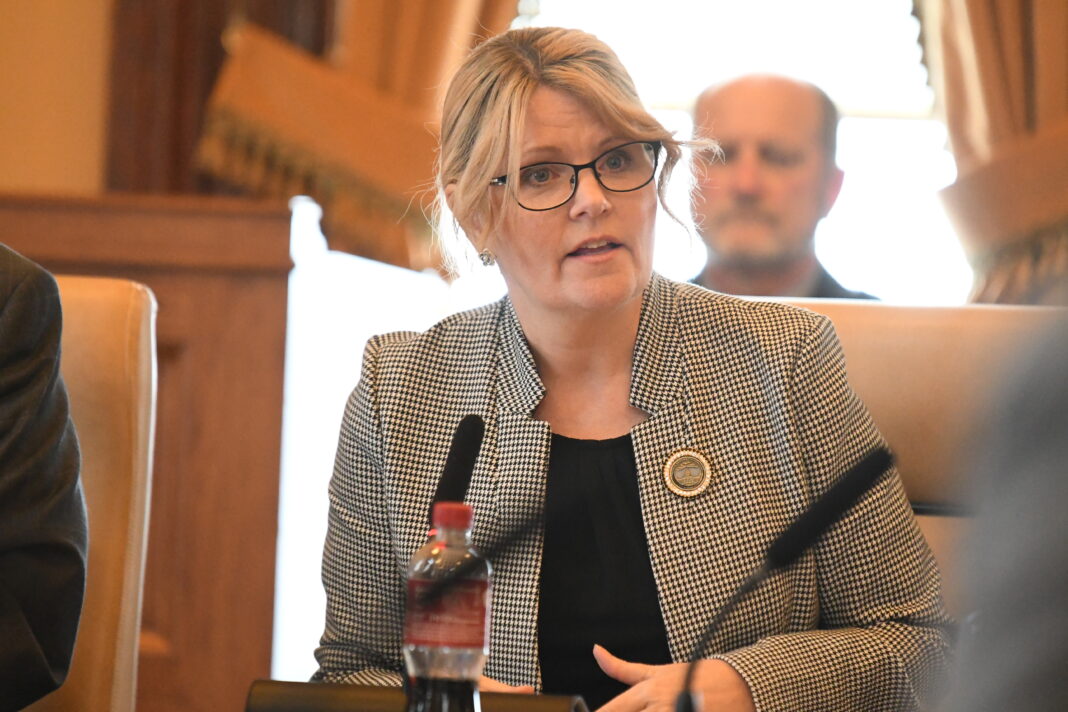A bill that would require a report to be made for conduct that constitutes “grooming behavior” toward a student moved through an Iowa House subcommittee on Wednesday, but not without lobbyists expressing major concerns.
House Study Bill 568 defines “grooming behavior” as engaging in a pattern of flirtatious behavior, making any effort to gain unreasonable access to or time alone with any student with no discernible educational purpose, engaging in any behavior that can reasonably be construed as involving an inappropriate, overly personal or intimate relationship with or conduct toward or focus on a student and engaging in any other individualized, special treatment not in compliance with generally accepted educational practices.
Emily Piper with the Iowa Association of School Boards said the group is largely supportive of what’s trying to be accomplished but suggests tightening up the language.
Nathan Arnold with Professional Educators of Iowa said the group is opposed to the bill. Arnold said he has a lot of experience in professional investigations and appreciates what the Department of Education is trying to do but claimed the bill goes “way too far.”
Arnold said strict rules are already in place that do not allow teachers to text students privately or friend them on social media.
However, banning one-on-one meetings goes too far in that students sometimes struggle with various things and have a “special bond” with a teacher that shouldn’t be viewed as a presumption of guilt.
According to Arnold, grooming behaviors written by attorneys have included asking a student how many siblings they have or receiving a public award.
The term “grooming” is difficult to define, according to Arnold.
“It doesn’t really work as a legal term with any real definition or legal meaning,” he said. “It’s more of an internet smear than it is a workable legal standard.”
The Board of Educational Examiners needs to have discretion and leeway as it currently does, he added. The problem attempting to be solved is “very real,” but he is concerned of false grooming accusations.
“That’s a stain that they’ll never be able to erase,” Arnold said. “It causes panic and destroys innocent lives. Teachers know that they will be guilty until proven innocent if there’s some sort of stigma about meeting with a student or something like that.”
Education lobbyists also pointed out the definition of grooming in the bill isn’t the same as the definition of grooming in another bill currently moving in the legislature.
Melissa Peterson of the Iowa State Education Association said the group knows grooming is a problem and has no interest in protecting bad apples, but wants to make sure conditions are not created where someone might fall under the definition of grooming just for doing their job.
She asked about the language in the bill specific to one-on-one meetings, noting that more vulnerable students often need one-on-one instruction. She also brought up music lessons and other extracurricular instruction, weight training and sports.
Dave Daughton with Rural School Advocates of Iowa and School Administrators of Iowa noted he has coached for years and as a coach one often works with kids on an individual basis.
The definition of grooming used in the bill was provided by the National Association of State Directors of Teacher Education and Certification.
Eric St. Clair of the Iowa Department of Education said he is confident the definition is coming from people who are “well-versed” in issues and who have weighed in on what grooming looks like in the education setting.
Republican State Rep. Bill Gustoff said he agrees with what the Department of Education is trying to do, but shares concerns over due process. He also shared stories of interactions while attending a small-town high school.
As a student, Gustoff talked with his music teacher who was a woman after his girlfriend dumped in and the two were alone one-on-one. Gustoff said he served as a page in the Iowa House after it was suggested by his track coach while they were on a run together.
“I want to be careful about eliminating those kinds of relationships that are appropriate and certainly not sexual in nature,” he said.
Gustoff said the bill isn’t the magic bill, but the issue needs to be addressed so he supported moving it forward.
Republican State Rep. Brooke Boden echoed those sentiments and moved it through to committee.
Democrat State Rep. Sharon Steckman did not sign it through.

















